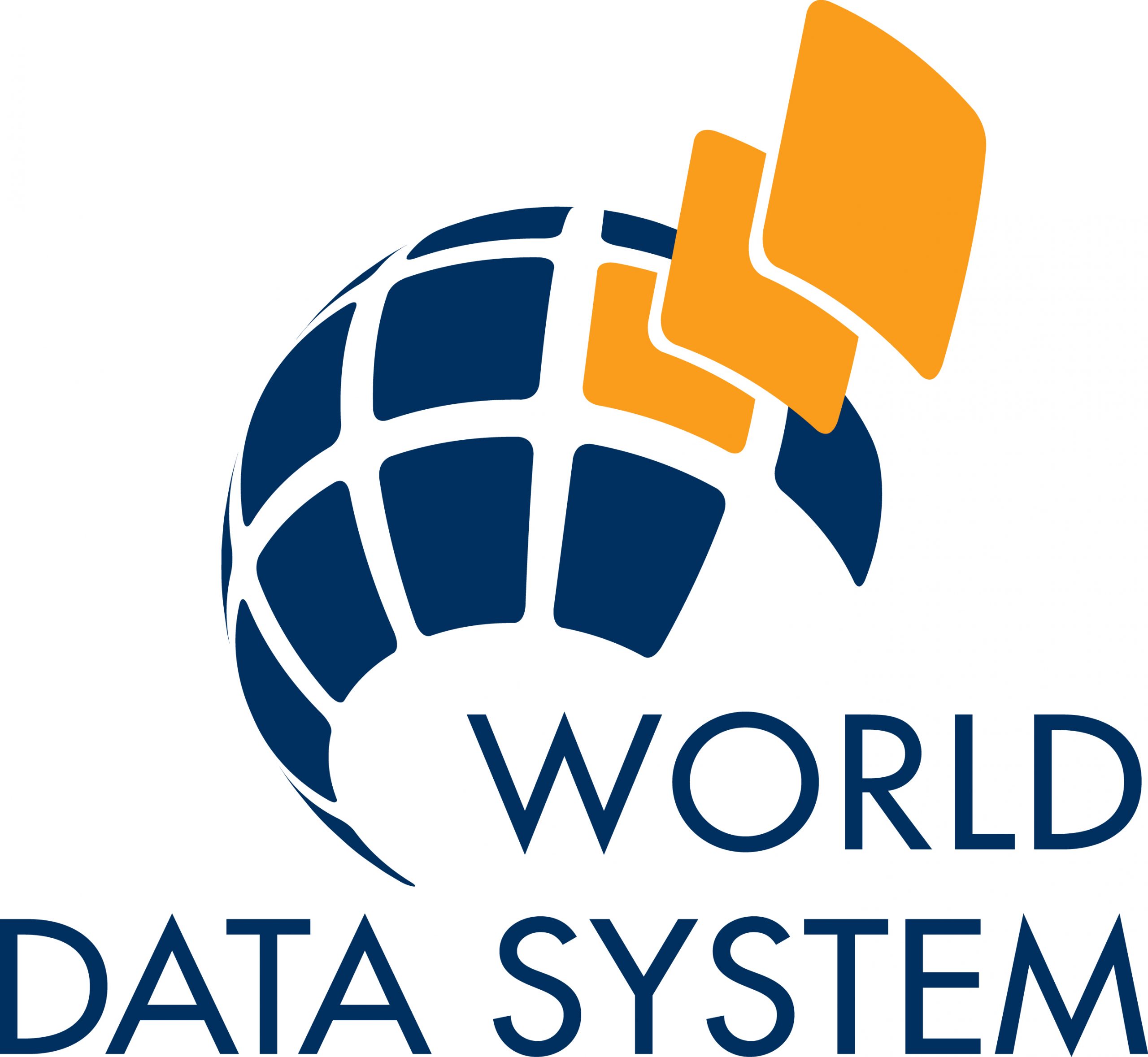Action Plan 2022-2024
Mission
The mission of the World Data System is to enhance the capabilities, impact, and sustainability of our member data repositories and data services by:
- creating trusted communities of scientific data repositories
- strengthening the scientific enterprise throughout the entire lifecycle of data and all related components creating first-class data that feeds first-class research output
- advocating for accessible data and transparent and reproducible science.
Strategy and Action Plan
WDS Scientific Committee chose, in January 2022, to develop a two year action plan to pursue the WDS mission as expressed in the WDS Constitution. This decision followed SC efforts, in 2021, to consult with WDS members, assess the WDS’ context, current strengths, and to identify future strategic goals. Consideration was given to renewing the WDS Strategic Plan 2019-2023. An action plan format was adopted instead because: 1) the overall strategy of the WDS is already expressed in its Constitution; 2) objectives and actions supporting the strategy can be articulated in an action plan; 3) the WDS action plan can align with that of the International Science Council (ISC 2022-2024). The Action Plan development was also informed by the previous work conducted by the SC towards renewing the existing strategic plan.
Objectives
This Action Plan focuses on making progress on four objectives in the next two years:
- Provide services and support to existing and new members
- Develop value narratives for WDS members
- Provide global leadership and agenda setting
- Enhance access, quality and accessibility of data worldwide
The alignment between the WDS and ISC Action Plans is deliberate and substantive. Specifically, the first and third WDS objectives are consistent with ISC priority theme 2.1: Digital transformations of science and education. The fourth WDS objective is consistent with ISC priority theme 2.2: Digital technologies for sustainability. As an affiliate body of the ISC, the WDS will contribute to the ISC’s mission and objectives while accomplishing its own mission and objectives.
The WDS objectives express a commitment to WDS’s overall direction and priorities for the next two years. Suggested actions associated with each objective indicate what should be done, by whom, how they will be supported by the WDS, and the intended impact.
1. Provide services and support to existing and new members
The WDS exists to develop and support an international community of members responsible for scientific data repositories and related data stewardship. Current membership of the WDS is predominantly in the global north. Increasing representation in the global south has been identified as a priority. The WDS will work with partners in the global south to identify existing repositories who may wish to become members and assist with efforts to develop new repositories that may become WDS members.
WDS membership currently reflects historically data-intensive fields, especially earth and environmental science, astronomy and space science. Many other fields, notably those in the social sciences and humanities, are increasingly data intensive. In addition, AI/ML is being used to explore societal issues that can only be informed by trustworthy and accessible social science and humanities data. WDS sees the need to identify more repositories that have these holdings and to make them aware of the full suite of WDS services. The WDS will undertake to diversify its membership more broadly across disciplines. The WDS will undertake, through regular and wide consultation and by receiving recommendations, to increase its membership and diversify members across disciplines.
The objective to provide services and support to existing and new members will be implemented through the following actions:
- Renew existing members and continue to serve their interests and needs
- Enhance communication with members to encourage greater participation and better understand their needs
- Increase the number of WDS members generally, with focus on
- Addressing membership gaps in the global south
- Addressing membership gaps in under-represented, data-intensive fields
- Continue to develop federated infrastructure and coordinate activities amongst data managers.
2. Develop value narratives for WDS members
Repositories have served the data needs of scientific communities for decades and are a critical element of global scientific infrastructure. As scientific disciplines and practices evolve, the needs of user communities change with different approaches to the creation, sharing and utilization of data also evolve. The open science movement also reshapes expectations regarding access to data, appropriate limitations on open-by-default, and raises the question about data ownership and benefit sharing. These expectations also include the idea that the data will always be available when in fact funding or other societal disruptions can impact the sustainability of a repository. Publishers increasingly assert an interest in data and data quality associated with publications and demonstrate a growing interest in this part of the research lifecycle. Their involvement may alleviate some sustainability issues but the cost of open science is still an important question. Passing responsibility of data to publishers raises concerns, in particular responsiveness to the relevant research communities.
In this context, repositories, an essential element of the scientific enterprise, must demonstrate continued relevance to the research communities they serve. They must also demonstrate value to funders, a challenging proposition when the ubiquity of data and the seamlessness of well-managed technology leaves the impression that repository costs should decline, when in fact, these elements have substantial costs attached to them. The WDS, in response to members’ concerns about funding and sustainability, will work with each member to develop resources to demonstrate relevance and value to research communities and funders. This objective will be supported by three actions:
Creating a framework for repositories in which
- WDS is clearly positioned as the voice for data repositories globally, and clearly expresses the value proposition for each WDS member repository
- Partnering with each repository to develop value narratives for the purposes of communications, funding, and sustainability
- Awarding a data prize that rewards innovative use, analysis and visualization of data found within WDS member repositories which demonstrates tangible value.
3. Global leadership and agenda setting
The WDS is positioned to provide global leadership and contribute to setting the international agenda for data-intensive science. Through collaboration with other international organizations, working with WDS members, and engaging research communities, the WDS will lead in priority setting and supporting the global data community in its development of workforce capacity and skills development. These efforts will meet the evolving needs in the research data community while building partnerships and expanding the WDS network. The WDS will work towards this goal by:
- WDS members, ITO, IPO and SC serving in leadership positions in relevant organizations that are setting priorities, developing standards, and creating roadmaps
- WDS and CODATA can collaborate on shared objectives and initiatives, and as affiliated bodies of the ISC, can jointly support the ISC’s mission and action plans
- Enhancing workforce capacity and skills development through education and training opportunities that meet the scientific and technical needs of repositories and more broadly in response to research communities
- Supporting Early Career Researchers (ECR) through the WDS Data Stewardship Award and the ECR Network
- Promoting open science and encouraging adherence to the WDS Data Sharing Principles as seen in the WDS Bylaws to current and potential users, the media, and the public.
- Offering member training and guidance on becoming a trustworthy repository and adopting new technologies
4. Enhance access, quality, accessibility and interoperability of data worldwide
Data availability and quality is foundational to the success of the global scientific effort. The WDS exists to promote the availability and use of data worldwide, and increasingly there is an associated need to maintain trust in the data that is provided by WDS members. The WDS can develop an integrated standard for trust in data that incorporates the four dimensions of trust:
- assurance of the ethical and legal provenance of data sources,
- stewardship and certification that ensures data quality,
- adoption of recognized research security practices to protect data,
- integration of WDS data as part of the larger global research infrastructure.
This approach combines elements of CARE, FAIR, and TRUST principles, but goes further in two other respects. The first is to expand the concept of data integrity to include the UNESCO Recommendation on Open Science, evolving requirements of the Core Trust Seal certification, and leading data security practices. Second, the WDS can work with existing and new members to make these data integrity factors repository-centric, that is, to interpret them in a guidance document of direct relevance to repository managers and data stewards. Questions surrounding provenance, integrity, and appropriate use of data can be addressed both through technical and community building activities. The WDS will address this objective by:
- Developing a work plan to identify key issues around trust in data.
- Creating a framework to address and respond to issues of repository and data security.
- Developing a repository-centric approach to trustworthiness for inclusion in each member’s value proposition.
- Developing a roadmap for a global research commons, in conjunction with partners within and outside of WDS.

